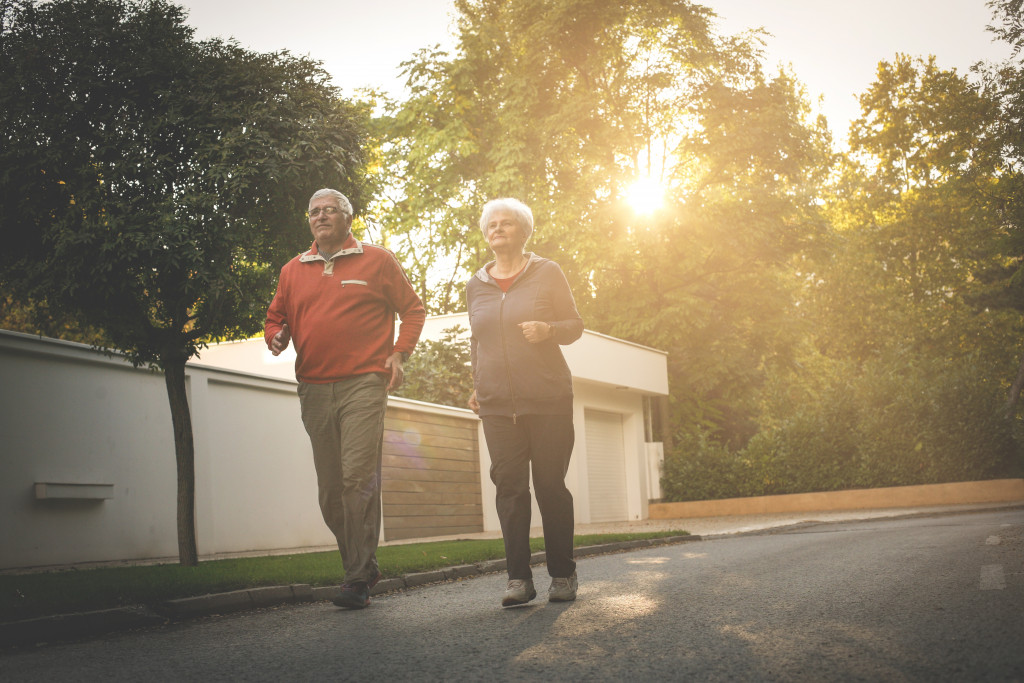- Stay active by engaging in low-impact activities like walking, swimming, and cycling.
- Embrace outdoor activities with caution and adequate preparation.
- Seek advice from a geriatrics specialist on tailored exercise programs and nutrition.
- Make lifestyle changes to stay hydrated, well-rested, and socially connected.
- Maintain a positive attitude and remain determined to keep the adventure alive.
Getting older doesn’t mean you have to give up your love for adventure and the great outdoors. In fact, there are many ways to stay physically active, adventurous, and connected to nature as you age. Numerous studies have shown that an active lifestyle can be beneficial to your physical and emotional health, and outdoor activities can offer a sense of freedom, joy, and fulfillment. If you’re an outdoor adventurer and looking to maintain an active lifestyle as you age, here are some tips and ideas to keep the adventure alive.
Stay Fit and Healthy
Maintaining a healthy lifestyle is critical to maintaining an active and outdoorsy lifestyle. Exercise regularly to keep yourself physically fit and mentally sharp. You can engage in strength training exercises to maintain muscle mass and bone density. It’s crucial to maintain a healthy diet to support your physical health and energy levels. To stay fit and healthy, here are some physical activities that you can add to your daily routine:
Walking
Walking is one of the easiest activities that can be done at any age. It’s low-impact, easy to do, and requires no special equipment or skill. Plus, it gives you the opportunity to explore your surroundings in a way that other forms of exercise don’t. Studies have found that regular walking can help improve cardiovascular health, reduce stress, and maintain muscle strength.
Swimming
Swimming is another excellent way to stay active and outdoorsy as you age. It offers the same low-impact benefits of walking, with the added bonus of being able to explore the depths of the ocean or lake. Swimming can help improve your cardiovascular health, increase your strength and flexibility, and even reduce stress levels.
Cycling
Cycling is a great way to stay active and explore the outdoors as you age. It’s low-impact, easy to do, and requires no special equipment or skill. Plus, it gives you the opportunity to enjoy the beauty of nature in a unique way. Regular cycling can help improve cardiovascular health, reduce stress levels, increase leg strength, and improve coordination.

Embrace Outdoor Activities
Outdoor activities offer a range of benefits, such as improving your physical health, reducing stress, and increasing your sense of well-being. If you love hiking, camping, or other outdoor activities, don’t let your age hold you back.
Look for trails that are appropriate for your level of fitness, and always bring a friend or family member with you for safety. If you’re interested in trying new activities, such as kayaking or rock climbing, seek out guided tours or classes that offer instruction and support.
Furthermore, look for ways to make outdoor activities more accessible. Invest in gear that is specifically designed for seniors, such as ergonomic trekking poles and seat cushions. Also, look for events or workshops that cater to older adults, such as yoga classes in the park or nature photography workshops.

Seek a Geriatrics Specialist
To ensure your safety and well-being while staying active and enjoying the outdoors, it is crucial to seek out the advice of a reliable geriatrics specialist. A specialist will be able to evaluate your physical condition and provide tailored advice on how you can maintain an active lifestyle safely. A geriatrics specialist can also help you stay active for longer by giving these:
Advice on Nutrition
A geriatrics specialist can also help you maintain an active and outdoorsy lifestyle by providing advice on nutrition. Eating nutrient-rich foods is vital for maintaining energy levels and physical health as you age. A geriatrics specialist can provide assistance in creating a balanced, nutritious diet that meets your dietary needs and helps support your active lifestyle.
Lifestyle Changes
A geriatrics specialist can also offer advice on lifestyle changes that can support an active and outdoorsy lifestyle. This could include tips on how to stay hydrated, proper stretching techniques, sleep and relaxation routines, and the importance of staying socially connected. Additionally, they can suggest safe activities that are tailored to your age and physical condition, such as tai chi or water aerobics.
Exercise Programs
A geriatrics specialist can also help you maintain an active and outdoorsy lifestyle by designing tailored exercise programs. These programs should include exercises that are specifically designed to target your individual needs and physical abilities. Exercise programs may involve activities like walking, cycling, swimming, or even hiking on easy trails.
Maintaining an active and outdoorsy lifestyle as you age is possible with the right mindset, preparation, and support. By staying fit and healthy, embracing new activities, adapting to your abilities, making connections, and practicing safety precautions, you can continue to enjoy your love for adventure and the great outdoors. Age is just a number, and with determination and positivity, you can keep the adventure alive.

